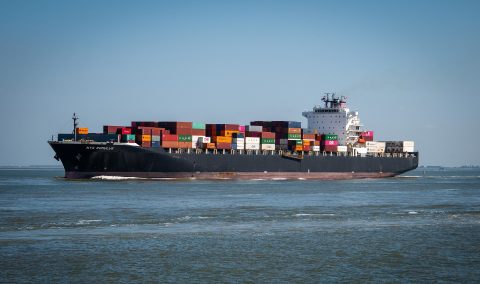
MINDA copes well with delivery difficulties thanks to good inventory management
The current economic difficulties and supply difficulties are reaching more and more sectors and sub-sectors of the economy. The effects are also being felt in the car wash industry. CarwashPro spoke to Sascha Gellermann, who works in sales at MINDA, a manufacturer of plastic conveyor belts, about the current situation and the effects on MINDA.
Currently, several negative aspects are coming together to cause major constraints in some parts of the economy. On the one hand, international supply chains have broken down because sea transport has come to a standstill. On the other hand, there are supply difficulties for primary products and raw materials, so that production chains do not function smoothly. At the same time, demand is also increasing in various sectors of the economy, leading to a further shortage of raw materials, materials and goods.
CarwashPro is in contact with manufacturers and companies in the car wash industry and also asked MINDA, a German manufacturer of plastic conveyor belts, about the current market situation. Our questions were answered by Sascha Gellermann, who works in sales at MINDA and is in close contact with MINDA customers.
CarwashPro: When did you start noticing the first restrictions?
Sascha Gellermann: The development of raw material prices and availabilities has already been very tense since the beginning of 2021 and is getting increasingly worse. The price increase for raw materials such as steel, copper and plastics is enormous and is further fuelled by the artificial shortage during the pandemic. Sometimes the simplest things, such as packing wood, are in short supply and hard to come by.
CarwashPro: Where do you see the origin of the current problems?
Sascha Gellermann: The origin of the problems definitely lies in the Corona pandemic. Worldwide, the very different Corona policies put the brakes on production and subsequently on transport. Ports were closed, fewer containers produced and staff reduced. When transports started up again, it was impossible to make up for the short response time. The short-lived closure of the Suez Canal then also played its part, because the longer the difficulties last, the higher the pile-up of demand.
Since almost all business areas are affected, the shortage cannot be compensated for in the short term by new production processes or suppliers. The huge increase in demand, for example, for e-mobility, the energy transition and digitalisation in all areas would have pushed the producers of semiconductor and electronic components to their limits even without a pandemic. Currently, the producers of electronic components are still working with relatively high raw material reserves, but these will continue to decrease in the future.
CarwashPro: How does the situation affect car wash operators who, for example, have current or planned construction projects, running facilities with routine replacement of spare parts or car washes with an acute need for goods due to a defect?
Sascha Gellermann: Currently, in many cases, we still help ourselves from a good stock, but the restrictions in the supply chains lead to increasing delays when trying to replenish them. Of course, this is also reflected in the total cost of materials, which makes price adjustments unavoidable.
Routine replacement of spare parts is therefore probably still unproblematic at present, whereas delivery times will increase in the medium term, especially for large construction projects that often exceed the usual stock levels.
CarwashPro: How is MINDA trying to solve the situation for its customers?
Sascha Gellermann: We have taken a number of countermeasures on the purchasing side to counteract the development as best as possible and approached our suppliers early on to also secure existing supply agreements. Fortunately, we have a high proportion of reusable standard components, which enables us to access a well-stocked inventory and a broad supplier base within the entire group of companies.
However, this can only bridge the current situation in the short term. We expect the situation to ease in the second quarter of 2022 at the earliest. Especially in the area of electrical components, it will be possible to counteract the permanent shortage with increased diversity of electronic components in the next few years and to develop alternatives for essential components in order to enable more flexibility in the supply chain again.
CarwashPro: What do you recommend to your customers to get through the coming months in the best possible way?
Sascha Gellermann: For projects to continue to run smoothly, it is crucial to get in touch about joint projects early on, even if the planning has not yet been completed, in order to be able to include suppliers with sufficient lead time. With early coordination, we have so far been able to supply every customer on time despite the difficult procurement situation.
CarwashPro: Thank you for the answers and insights into the current situation at MINDA.



